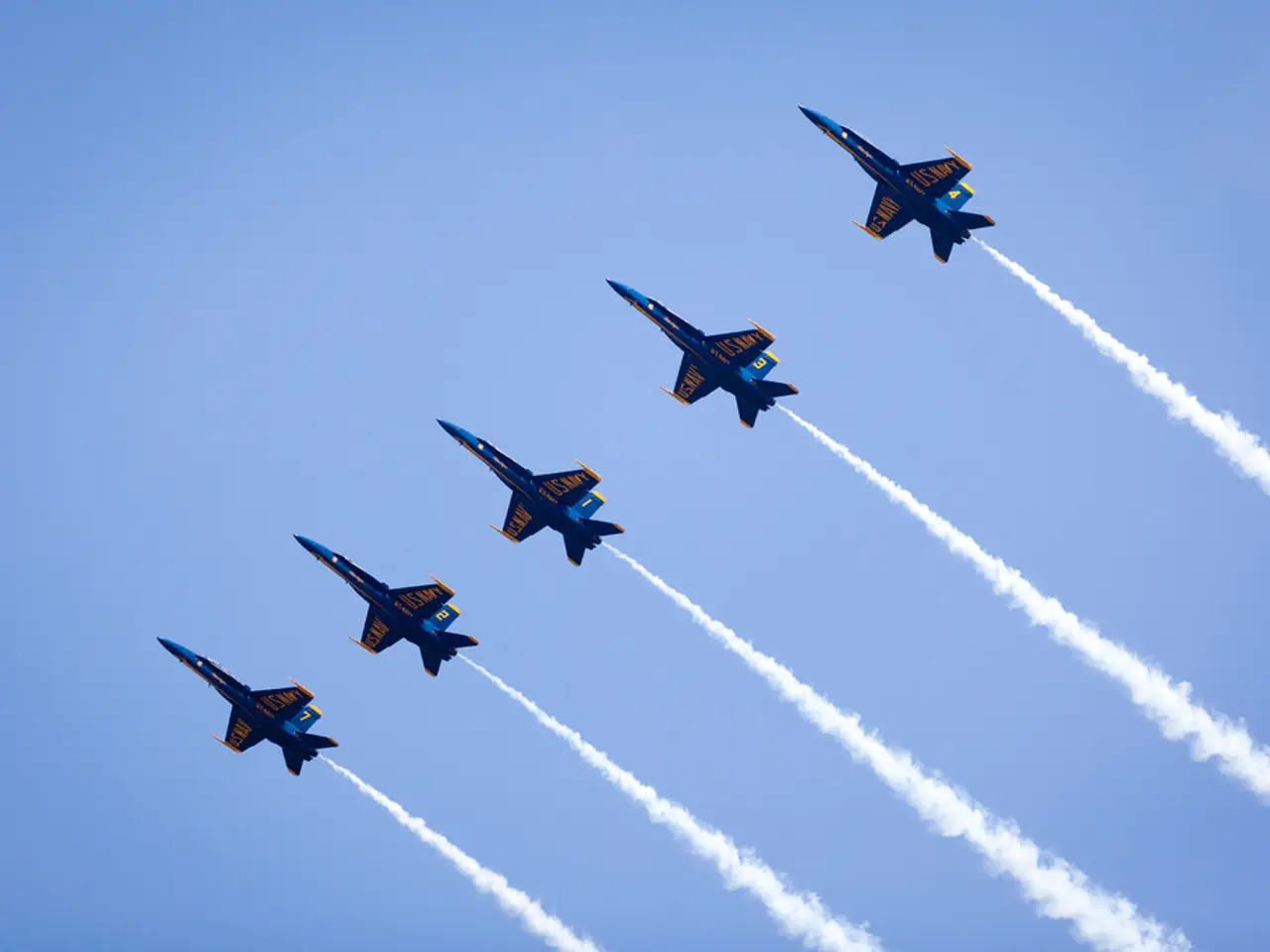NATO member Estonia activates Article 4 following audacious Russian MiG-31 incursion into its airspace
In a tense turn of events, Russian MiG-31 interceptor jets, capable of flying at speeds above Mach 2.8 and armed with advanced air-to-air missiles, were reported to have entered Estonian airspace on September 19, 2025. This incident, which lasted for 12 minutes, marks the latest in a series of airspace violations faced by NATO's Baltic members this year.
Pictures released by the Swedish Air Force show similar Russian MiG-31 interceptors patrolling the skies over the Baltic Sea. The Swedish Armed Forces confirmed that JAS 39 Gripen fighters were scrambled to intercept and monitor the Russian jets during this encounter.
The incident, described as "yet another example of reckless Russian behaviour" by NATO, occurred near Vaindloo Island. Following this provocation, Estonia's Foreign Minister Margus Tsahkna condemned the incident as the most serious violation of the year. In response, Estonia's Prime Minister, Kristen Michal, announced that Tallinn would request NATO Article 4 consultations.
The Russian aircraft were armed with three long-range R-33 air-to-air missiles, designed to engage high-speed, high-altitude targets at ranges of more than 100 kilometers. These missiles are typically carried under the fuselage of the MiG-31, allowing for a formidable offensive capability.
Estonia's Foreign Ministry reported that three Russian MiG-31 fighter jets entered Estonia's airspace without permission over the Gulf of Finland. This incident, coming on the heels of two Gerbera drones crossing over from Belarus into Lithuania weeks earlier and remains of a similar drone being found on the Baltic coast of Latvia on September 18, 2025, has raised concerns about Russian aggression in the region.
The European Commission President, Kaja Kallas, described the drone incident that occurred in Poland on September 9, 2025, as an "extremely dangerous provocation." At least four drones were downed with help from Dutch F-35s and Polish F-16s, but a block of a residential area was damaged, likely due to friendly fire amid counter-drone actions.
Stockholm's readiness to act jointly with allies to safeguard regional airspace was underscored by the Swedish Air Force's actions. Meanwhile, NATO countries, including Italy, took military action by intercepting the Russian jets with Italian F-35s as part of NATO's Baltic Air Policing mission.
In response to these events, Estonia's Foreign Minister Tsahkna stated that Russia's increasingly extensive testing of boundaries and growing aggressiveness must be met with a swift increase in political and economic pressure. This sentiment was echoed by NATO, which vowed to continue its vigilance and commitment to the security of its member states.
Read also:
- United States tariffs pose a threat to India, necessitating the recruitment of adept negotiators or strategists, similar to those who had influenced Trump's decisions.
- Weekly happenings in the German Federal Parliament (Bundestag)
- Southwest region's most popular posts, accompanied by an inquiry:
- Discussion between Putin and Trump in Alaska could potentially overshadow Ukraine's concerns





